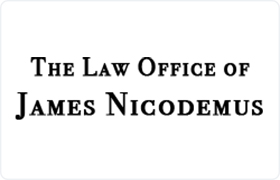Schaumburg Foreclosure Lawyer, Illinois
Sponsored Law Firm
-
 x
x

Click For More Info:
-
The Law Offices of James Nicodemus
2700 Patriot Blvd Suite 250 Glenview, IL 60026» view mapReal Estate Law Experienced Real Estate Lawyer
When you need accurate representation, whether it’s a divorce lawyer, family lawyer or child custody attorney, James Nicodemus is there for you.
800-986-5891
Wendy R Morgan
✓ VERIFIEDDivorce & Family Law, Power of Attorney, Foreclosure
Wendy R. Morgan is the founder and owner of The Law Firm of Wendy R. Morgan. Wendy has been practicing law since 1981 and has been concentrating in Fa... (more)
Lincoln King
Foreclosure, Employee Rights, Corporate, Bankruptcy
Status: In Good Standing Licensed: 22 Years
Shannon Barry Rigby
Landlord-Tenant, Foreclosure, Real Estate, Federal Appellate Practice
Status: In Good Standing
Alexander Preber
Foreclosure, Litigation, Collection, Bankruptcy
Status: In Good Standing Licensed: 8 Years
 James Nicodemus Glenview, IL
James Nicodemus Glenview, IL AboutThe Law Offices of James Nicodemus
AboutThe Law Offices of James Nicodemus Practice AreasExpertise
Practice AreasExpertise

